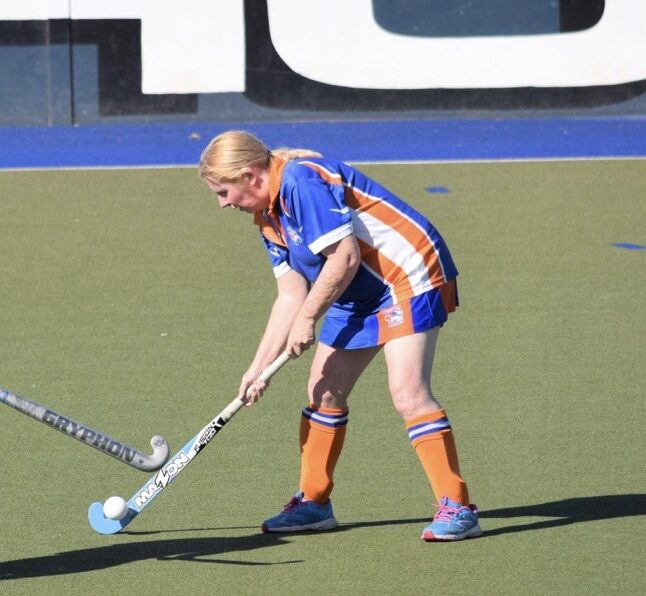Kim Abbott playing for inclusion on and off the field
For Kim Abbott, hockey has always been part of life.
“My Mum was a state player for Queensland, and from under-10s I just fell in love with it,” she says. While she never chased the elite pathway, she’s played for fun, family connection and community –coaching juniors and seniors, working extra canteen shifts and serving on committees. “I don’t care what sport my kids play, as long as they play something.”
Seven years ago, Kim began losing her hearing. “I didn’t tell my new teammates in Toowoomba for two years – I was worried about being judged.” Her daughter, born prematurely, faced her own challenges. In one grand final, the coach benched her. “He told me he didn’t want her to ‘stuff it up.’ She walked away from hockey for a while. That’s when I became passionate about making sure kids with different abilities get to play.”
She believes data is key to breaking this cycle. “Some sports already collect it but don’t use it. If you know who’s out there, you can make the game better for everyone.” She challenges sports to move beyond token days. “An all abilities event once a year is nice, but it’s not enough. Not everyone wants to be a Paralympian – some just want to play.”
Kim says the biggest barrier isn’t the disability itself, but the fear others have of “saying or doing the wrong thing - which can lead to doing nothing.”
“We’ve made good inroads on inclusion, but we need to do better.”
Her message to sporting organisations is clear, “We’ve made good inroads on inclusion, but we need to do better. Everyone needs to be more open and accepting – and make it part of the system, not just a once-off moment.”

